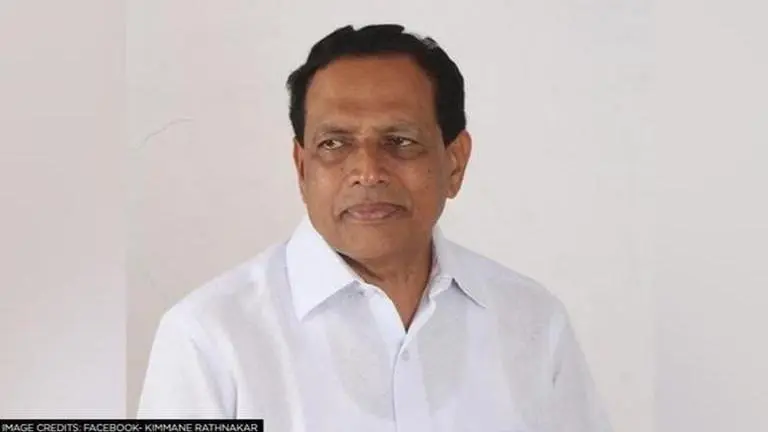Updated 14 September 2021 at 14:39 IST
Karnataka: State's ex-education minister Kimmane Ratnakar opposes implementation of NEP
Karnataka Congress' spokesperson Kimmane Ratnakar spoke out against state's implementation of the New Education Policy (NEP) on Monday.
- India News
- 2 min read

Kimmane Ratnakar, former education minister of Karnataka and Congress spokesperson, spoke out against the state's implementation of the New Education Policy (NEP) on Monday. Ratnakar claimed that it would promote large-scale privatisation of the education sector. Addressing a press conference in Shivamogga, Ratnakar also said that the administration had not discussed NEP's effects with specialists.
Ratnakar added that it was also not debated in the legislature. He highlighted that due to the changes with the NEP 2020, there is a threat of private playing taking over the education sector in the country, further claiming that it will cause poor people to lose opportunities.
Kimmane Ratnakar on NEP 2020
"Congress is vehemently opposing the new education policy, which aims to bring a paradigm shift in the education system but not tabled for discussion. This is a serious matter related to every citizen in the country," he said. "It should have been debated in the Parliament and respective state Assembly. But the BJP pushed it without listening to any stakeholder's opinions," he further said.
NEP 2020's proposed changes for school education and SAFAL
NEP was launched by the Centre on July 29, 2020. PM Modi had launched SAFAL (Structured Assessment For Analysing Learning), on its first anniversary. SAFAL is a competency-based assessment for grades 3, 5, and 8. It has been adopted by the Central Board of Secondary Education (CBSE). India's education system will be transformed by 2040, according to the National Education Policy 2020 (NEP 2020). The structure "10 + 2" will be replaced with the "5+3+3+4" model as followed by numerous countries globally. Students' curricular loads will be reduced as a result of this strategy, allowing them to be more "inter-disciplinary" and "multilingual."
NEP's changes for Indian education
The NEP proposes a four-year multidisciplinary bachelor's degree. This degree model comes with several exit possibilities in an undergraduate curriculum. Higher education will be regulated by the Higher Education Council of India (HECI). The purpose of the council will be to raise the gross enrollment ratio. The policy demands the internationalisation of Indian education. Foreign universities can now easily establish campuses in India. Karnataka was the first state to issue an order implementing the NEP in early August 2021. Madhya Pradesh, too, introduced NEP 2020 on August 26, 2021.
Advertisement
(With inputs from ANI)
Image: Facebook/Kimmane Rathnakar
Advertisement
Published By : Piyushi Sharma
Published On: 14 September 2021 at 14:39 IST
